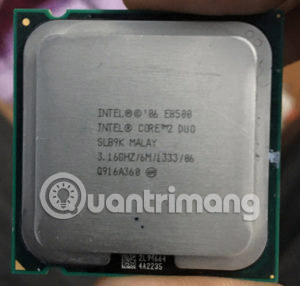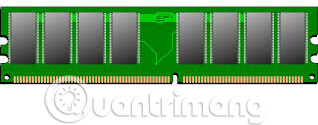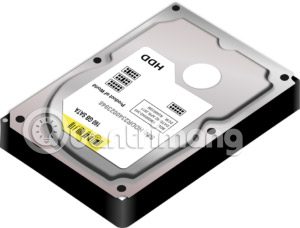The difference between desktop and server
Is the desktop and server the same? If the computer is different from the server, what is the difference? How to distinguish desktop and server? TipsMake.com has summarized some of the main ideas for you to know the desktop and server.
Desktop and server play a very important role in IT infrastructure. They provide all kinds of services and make work easier. However, there are many differences between a desktop and a server. Here are some points that the difference is most noticeable.
Distinguish desktop and server
- Based on the operating system (Operating System)
- Hardware based
- 1. NIC (Network Interface Card)
- 2. CPU (Central Processing Unit / Central processor)
- 3. RAM
- 4. Memory
- Based on form factor
Difference between desktop and server on operating system (Operating System)
Most of the two operating systems are available for desktop or laptop depending on user requirements.
Windows Vista, Windows 7, Windows 8 / 8.1, Windows 10 are some operating systems for desktop and laptop computers running Windows. Windows is a Microsoft initial product and license-based.
When it comes to servers, there are many variations available from Microsoft. The following are the operating systems available to servers:
- Windows Server 2008
- Windows Server 2008 R2
- Windows Server 2012
- Windows Server 2012 R2
Ubuntu, Lubuntu, and Kubuntu are some Linux-based operating systems and can be installed in any desktop or laptop computer. Today, many laptops are preinstalled with Linux operating systems because they are available for free.
Some Linux server operating systems are:
- Debian Linux / Ubuntu Server
- Red Hat Enterprise Linux
- SUSE Linux Enterprises
Some other operating systems include:
- MAC OS X Server
- Oracle Solaris OS
Difference between desktop and server hardware
Desktop and laptop computers typically have lower capacity than servers. As follows:
1. NIC (Network Interface Card)

Desktop or laptop computer has only one NIC. NIC (network interface card) is a very important part of any device and requires a network connection. This card helps establish links with that device and network.
In servers, the number of NIC cards will be 2 or more. Because a server usually serves special purposes and must be available / online 24/7. In some servers, the number of NIC cards can be up to 8 or 16 depending on the requirements.
2. CPU (Central Processing Unit / Central processor)

CPU is one of the most important parts of any desktop / laptop or server. It is like the 'brain' of the system. The higher the CPU power, the faster the tasks will be performed.
Usually there is a big difference in processor level desktop / laptop and server. They all have multiple socket types, processing capabilities, models and generations. Processors are more expensive than conventional desktop processors.
3. RAM

RAM (RANDOM ACCESS MEMORY) is another important part that we can easily see the difference when comparing desktop and server. There are many types of RAM modules available on the market, starting with DDR2, DDR3, DDR4 and currently DDR5. All these RAM modules have different frequencies when they work. Depending on the requirements, some servers are customized. The motherboard supports most single DDR modules, but now there are motherboards that can support two different types of DDR modules. Usually 4GB to 8GB RAM is enough for desktop or laptop computers to perform everyday tasks. But for RAM server, the request will be much higher. There are servers that require installation of RAM 128GB, 1.5TB, 4TB.
4. Memory

In everyday life, we depend a lot on email, attachments and other files. And these files are stored in a place called memory. Normally, if you use a desktop or laptop, you have a limited amount of data, which can be 100GB or 300GB. But when it comes to a host, that means a huge amount of space to store data.
Because the server serves the needs of many users and performs many tasks, it requires a very large memory space, ranging from 500GB to 2-3TB. The cost of storage is very expensive and it depends on the requirements of the server.
Differentiate desktop and server based on form factor
Desktop and laptop computers are compact and can be brought from one place to another very easily. But the server requires a dedicated space in RACK (network cabinet) or a room.
RACK is a special space built to suit the characteristics of the servers and the maintenance necessary for them. The weight of the server is much larger than the desktop. The server has 2 power supplies, lots of RAM, multiple processors and multiple interface cards. They all contribute to the weight of the server. Almost all desktops / laptops have a microprocessor and one or two RAM modules are equipped for each specific purpose.
See more:
- The reasons for Data Center crash
- 4 basic difference between Windows Server and Windows Desktop
- 8 main differences between Windows and Linux
- Networking basics: Part 4 - Workstation and Server